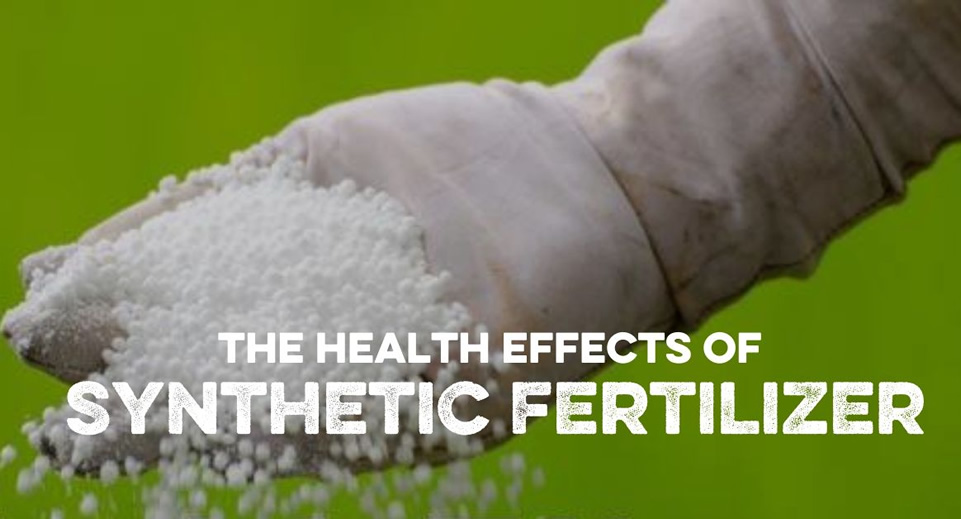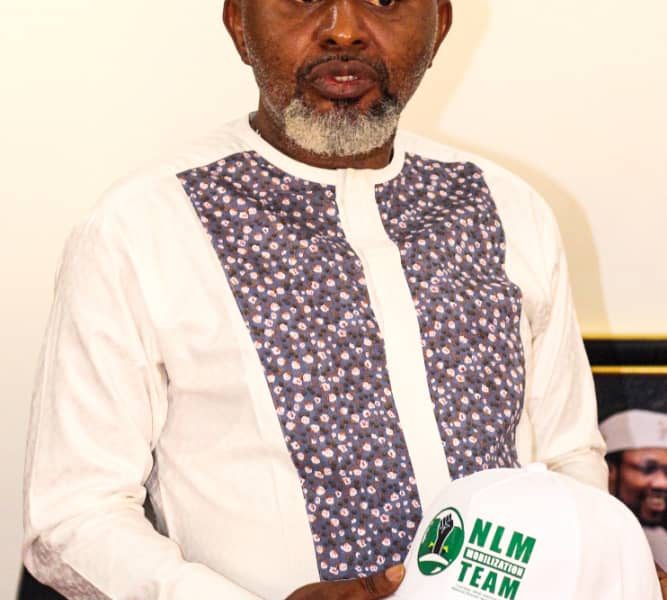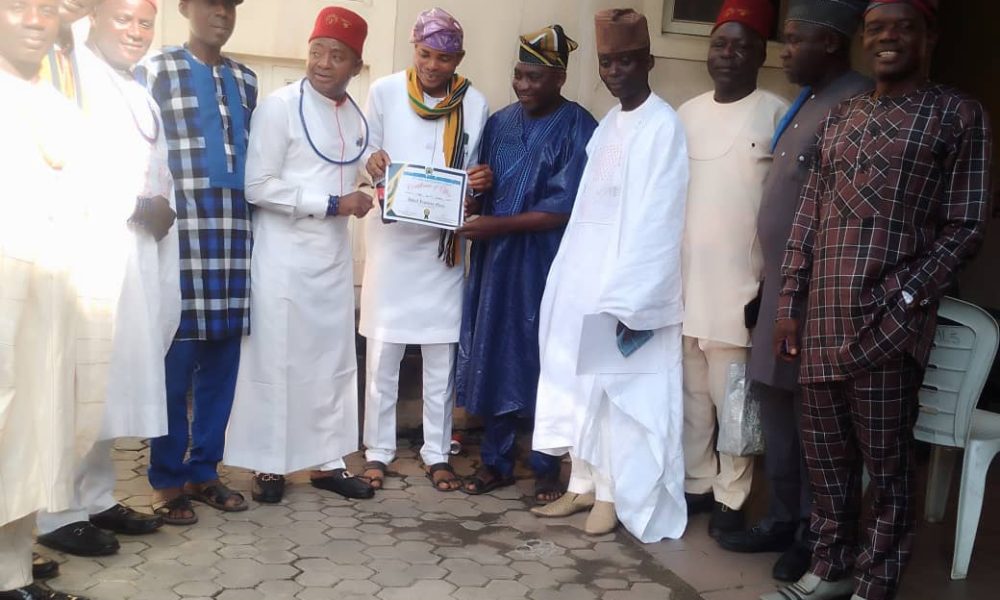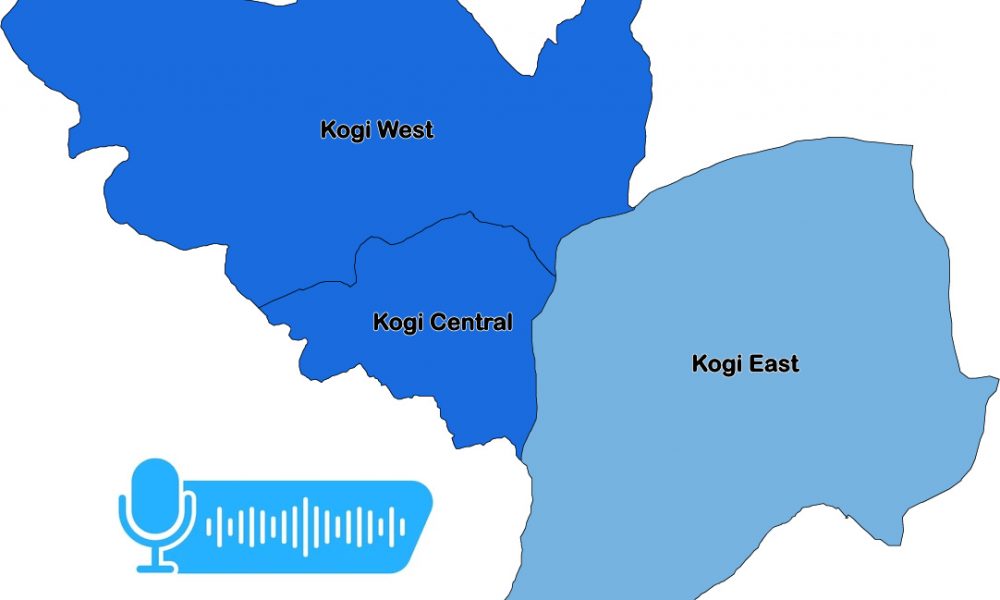Food and Agriculture
How Artificial Fertilizers In Food Production Can Cause Untimely Death

A Professor of Soil Fertility and Plant Nutrition, Professor Moses Awodun has reiterated the danger of continuous use of synthetic fertilizers in crop production to human life
The Professor observed that most terminal illnesses ravaging the society could be as a result of the consumption of various food crops including fruits produced with the aid of synthetic fertilizers. googlesyndication.com/pagead/js/adsbygoogle.js">
Professor Moses Awodun made this observation while delivering the 129th inaugural lecture of the Federal University of Technology, Akure (FUTA) titled The Nexus of Population, Food Security, Climate Change and Plant Nutrition: Organic Wastes as Alternative Fertilizer in Nigeria.
Awodun, said the risk of dying from cancer (brain cancer, prostate cancer, leukemia, intestinal cancer and lymphoma (non-Hodgkin’s lymphoma, NHL) is said to be six times more when synthetic fertilizers are used on crops that are consumed by people.
He also said synthetic fertilizers has also been associated with causing a condition which leads to difficulty in delivering sufficient oxygen to all body tissues, and is also linked to birth and development disorders such as the Blue Baby Syndrome.
Professor Awodun indicated that crops grown with high impact of fertilizers are less resistant, less nutritiously balanced and rot more rapidly than those which are naturally grown.
According to the Don the application of excess fertilizers is destroying the presence and balance of the Microbiome responsible for the production of nutrients in the soil thus making the farmer more and more dependent on this inorganic fertilizer.
Buttressing his points Professor Awodun referred to a report which stated that an individual today would need to consume twice as much meat, three times as much fruit, four to five times as many vegetables to obtain the same amount of minerals and trace elements available in the same food in 1940 because of the use of synthetic fertilizers.
Awodun said that with the rich endowment of abundant natural, mineral and human resources which characterize developing world and especially Nigeria, it is expected that they should be able to produce enough food to feed their people , generate foreign exchange earnings from the export and sales of surplus.
He said Nigeria soil should be the next Black oil in a world of climate change, adding that if as a country, it can curtail the vagaries in farm activities; it will go a long way in restoring life to the soil.
Awodun, a one-time Acting Director, Centre for Renewable Energy Technology (CRET) advised that to meet a state of equilibrium in food production in the face of an increasing population, food security and climate change, the government should invest in healthy living soils by channeling agricultural subsidies towards sustainable farming methods, stating that if this is done right ,agriculture can conserve the diversity of species found in soil, halt land degradation and desertification which in turn would help countries ensure future food securities and mitigate climate change.
He said farmers should be encouraged to obtain all their fertilizers from organic sources such as compost manures, green manures and legumes.
He advised that for health, commercial and environmental reasons it is clear that fertilizers should be used with caution. He said crop production for future food security will require sustainable fertilizer management, which might include more sophisticated decisions support tools, improved agronomic practices and cropping systems that require less fertilizer input.
In his remark the Chairman at the event and Vice Chancellor, Prof Joseph Fuwape, represented by the Deputy Vice Chancellor, Development, Professor Philip Oguntunde described the lecture as a contemporary one to present happenings within the society.
He also commended the lecturer for his immense contributions to the body of knowledge in his field of study.
Author Profile

- Prince Abdulrahman Obaje is a Media, Information and Computer Technology Consultant. A quintessential Journalist, online marketer, social media strategist, Mathematician and Computer Scientist is based in Abuja, Nigeria. He is the Founder and the Publisher of The Informavores!. You can reach me on +234 805 939 5252 or send i-witness report directly to me on news@informavores.com.ng.
Latest entries
 NewsMay 14, 2025NLM Confirms Appointment of the National Director Mobilization and Contact Suleiman Yunisa
NewsMay 14, 2025NLM Confirms Appointment of the National Director Mobilization and Contact Suleiman Yunisa NewsMay 14, 2025NLM-APM-Merger: National Director Mobilization and Contact Says Merger, Calls for Collaborative Synergy.
NewsMay 14, 2025NLM-APM-Merger: National Director Mobilization and Contact Says Merger, Calls for Collaborative Synergy. NewsMay 13, 2025Engr. Mohammed Ahovi Yusuf Celebrates Another Year of Selfless Service Under the Visionary Leadership of HE Alhaji Ahmed Usman Ododo
NewsMay 13, 2025Engr. Mohammed Ahovi Yusuf Celebrates Another Year of Selfless Service Under the Visionary Leadership of HE Alhaji Ahmed Usman Ododo PoliticsMay 13, 2025NLM-APM Merger: The APM’s decision to entrust its legacy to NLM, testament to two undeniably truth – Amb Meshach
PoliticsMay 13, 2025NLM-APM Merger: The APM’s decision to entrust its legacy to NLM, testament to two undeniably truth – Amb Meshach
Food and Agriculture
Neglecting Livestock Farming In The Past Was a Mistake That Should Not Be Repeated – President Tinubu

The Federal Government has said neglecting livestock farming in the past was a mistake that should not be repeated if we must food-secured and attain national security.
This is contained in a statement signed by Bayo Onanuga, Special Adviser to the President, Information & Strategy.
adsbygoogle || []).push({});
googlesyndication.com/pagead/js/adsbygoogle.js">
The statement read, ‘ President Bola Tinubu, speaking in Abuja, reassured the public that past mistakes, such as neglecting livestock farming and relying on dairy imports, will be avoided. He pledged a robust framework to stimulate prosperity in the sector, instilling confidence in his commitment.
The President, who opened a two-day Consultative Workshop on Livestock Reforms on Thursday October 24thm 2024 at the State House Conference Centre, pledged government support in revamping and repositioning the sector to create employment and attract foreign Direct Investment (FDI).
“The livestock sector is critical, and we will give all it needs to bring value to our country. Stakeholders, I assure you that you will not regret the collaboration and investment in this sector.
“It is about time that we do it right. A country of over 200 million people and cannot serve our children one pint of milk in a classroom per day? That is not right.
“We didn’t see the investment opportunities. We didn’t see the economy of livestock in the past. Now that we have seen it, we must work together to restart the sector,’’ he said.
President Tinubu commended the Presidential Livestock Reform Implementation Committee, led by the Co-Chairman, Prof. Attahiru Jega, and the Secretary, Prof Muhammed Yahaya Kuta, for their commitment to repositioning the livestock sector.
“Our shared mission is clear: we aim to transform the livestock sector from its current subsistence model into a thriving, commercialised industry, an industry that significantly contributes to Nigeria’s Gross Domestic Product and provides decent jobs and sustainable livelihoods for our growing population.
“The potential is immense: With 563 million chickens, 58 million cattle, 124 million goats, 60 million sheep, and 16 million pigs, Nigeria is the leading livestock producer in West Africa. Yet, despite this vast resource, we face stark realities.
“Our annual production of animal-source foods, like milk at 0.7 billion litres, meat at 1.48 million Tonnes and eggs at 0.69 million metric Tonnes, falls far short of our needs. Our per capita consumption levels—8.7 litres of milk, 9 kg of meat, 3.5kg or 45 eggs per year—are troublingly low compared to global averages. These are 44 litres of milk, 19 kg of meat and between 160 and 180 eggs per year.
“What is more worrisome to me is the average milk yield by cow breeds managed by our pastoralists: it is a mere 0.5 to 1.5 litres per day, compared to a global average of 6.6 litres per day. We can do much better!
“The long-term neglect of the livestock sector has weighed heavily on the country’s import bills, with milk and dairy products accounting for $1.2-1.5 billion.
“Yes, we can do it. We can bring prosperity to our people. We can feed our children. From grass, we can achieve grace. We can contribute so much to the Gross Domestic Product (GDP) and provide decent jobs,’’ the President noted.
President Tinubu also thanked the Nigerian Governors Forum, NGF, chaired by the Governor of Kwara State, Abdurrahman Abdulrazaq, for supporting the reform of animal farming in the country.
“Your Excellency, Chairman of the NGF, Abdulrazaq, thank you for assuring C-of-Os and other instruments from other areas. I also know that the Etsu Nupe, Alhaji Yahaya Abubakar, with the vast land in his domain in Niger State, will accommodate many investors.
“We didn’t see the cold room investment. We didn’t see that opportunity before now. But it is coming. We are going to give it all it takes.
“The opportunity is there; when I inaugurated the Presidential Livestock Reform Committee, I didn’t see the path clearly until they started working. Thank you, Prof Attahiru Jega,’’ the President stated.
President Tinubu also acknowledged Abdullahi Ganduje, Chairman of the All Progressives Congress (APC), for nurturing the idea of reforming the livestock stock, Nuhu Ribadu, national security Adviser, and Nyesom Wike, FCT minister, for their commitment to realising the dream.
“We can create a vivid picture of the future we want to see; it’s the future of our country. The economic opportunities for our children, and with that effort, we can say God bless Nigeria,’’ he stated.
The Chairman of NGF, Abdulrahman Abdulrazak, assured of the “100 per cent buy-in of the sub-national to make the reform a success because it is not just food security, but national security.’’
Abdulrazaq thanked President Tinubu for leading the initiative by chairing the implementation committee, regretting that past efforts in the same direction were reduced to files in the Ministries of Agriculture in states and local councils due to lack of political will.
He said each state should create a segment for livestock farming and extend the value chain to meat and dairy production.
The Minister of Agriculture and Food Security, Sen. Abubakar Kyari, thanked the President for his “bold action, exemplary leadership and unparalleled commitment to livestock reform.’’
Kyari assured of working with the Ministry of Livestock Development to realise the president’s vision to diversify the economy and empower more Nigerians.’
Author Profile

- Prince Abdulrahman Obaje is a Media, Information and Computer Technology Consultant. A quintessential Journalist, online marketer, social media strategist, Mathematician and Computer Scientist is based in Abuja, Nigeria. He is the Founder and the Publisher of The Informavores!. You can reach me on +234 805 939 5252 or send i-witness report directly to me on news@informavores.com.ng.
Latest entries
 NewsMay 14, 2025NLM Confirms Appointment of the National Director Mobilization and Contact Suleiman Yunisa
NewsMay 14, 2025NLM Confirms Appointment of the National Director Mobilization and Contact Suleiman Yunisa NewsMay 14, 2025NLM-APM-Merger: National Director Mobilization and Contact Says Merger, Calls for Collaborative Synergy.
NewsMay 14, 2025NLM-APM-Merger: National Director Mobilization and Contact Says Merger, Calls for Collaborative Synergy. NewsMay 13, 2025Engr. Mohammed Ahovi Yusuf Celebrates Another Year of Selfless Service Under the Visionary Leadership of HE Alhaji Ahmed Usman Ododo
NewsMay 13, 2025Engr. Mohammed Ahovi Yusuf Celebrates Another Year of Selfless Service Under the Visionary Leadership of HE Alhaji Ahmed Usman Ododo PoliticsMay 13, 2025NLM-APM Merger: The APM’s decision to entrust its legacy to NLM, testament to two undeniably truth – Amb Meshach
PoliticsMay 13, 2025NLM-APM Merger: The APM’s decision to entrust its legacy to NLM, testament to two undeniably truth – Amb Meshach
Food and Agriculture
Gov Ododo Flags Off 19.55km Obajana-Uro-Aku Rural Road Project

By Abdulrahman Obaje
Kogi state Governor Ahmed Usman Ododo flags off construction of the 19.55km Obajana-Uro-Aku rural farm road, marking a significant milestone in Kogi State’s quest for enhanced rural infrastructure and agricultural growth.
adsbygoogle || []).push({});
js">
Governor Ododo while performing the ceremony today October 15th, 2024 at Obajana Uro Junction, eulogies President Bola Ahmed Tinubu for his support to the people of Kogi State
According to him, the construction of the road would alleviate the suffering of the farmers in Kogi state.
In his words, “It is indeed with all sense of fulfillment that I stand here today to officially Flag Off the construction of about 19.55 Obajana —Uro—Aku road under Rural Access and Agricultural Marketing project called RAAMP,” he said.
He further noted that his Government is out to employ all legitimate means to improve the lives of the people of Kogi State.
The flagship project, undertaken by the Kogi State Rural Access and Agricultural Marketing Project (Kogi-RAAMP) and the State Ministry of Rural and Energy Development, demonstrates Governor Ododo’s unwavering commitment to rural-focused governance.
The Obajana-Uro-Aku rural road project is expected to bring numerous benefits to the state, including increased accessibility and easier movement of people, goods, and services between rural communities and urban centers.
It will also boost Economic Opportunities, improve market access for rural producers, and stimulate economic growth and development in the axis.
Governor Ododo’s administration has consistently prioritized rural development, recognizing its pivotal role in shaping the state’s economic future.
This project is proof of his dedication to providing infrastructure that benefits all citizens, regardless of geographical location.
The state, in collaboration with the Rural Access and Agricultural Marketing Project (RAAMP), a World Bank supportive program, is expected to yield sustainable results that will alleviate the people of Kogi State on many fronts.
The Kogi State Commissioner for Rural and Energy Development, Hon. Engr Mohammed Abdulmutalib, while speaking, appreciated Gov. Ahmed Usman Ododo for his commitment to the welfare of the people of the State.
According to him, the project would open up access to market, healthcare, and education for thousands of residents, which would enable them to engage more fully in the State’s economic activities. Adding that the state is set to Flag Off five more rural roads collectively spanning 65.25 Km across the state.
With Governor Ododo at the helm, Kogi State is poised for transformative growth, and this project is just the beginning of more unprecedented achievement.
Author Profile

- Prince Abdulrahman Obaje is a Media, Information and Computer Technology Consultant. A quintessential Journalist, online marketer, social media strategist, Mathematician and Computer Scientist is based in Abuja, Nigeria. He is the Founder and the Publisher of The Informavores!. You can reach me on +234 805 939 5252 or send i-witness report directly to me on news@informavores.com.ng.
Latest entries
 NewsMay 14, 2025NLM Confirms Appointment of the National Director Mobilization and Contact Suleiman Yunisa
NewsMay 14, 2025NLM Confirms Appointment of the National Director Mobilization and Contact Suleiman Yunisa NewsMay 14, 2025NLM-APM-Merger: National Director Mobilization and Contact Says Merger, Calls for Collaborative Synergy.
NewsMay 14, 2025NLM-APM-Merger: National Director Mobilization and Contact Says Merger, Calls for Collaborative Synergy. NewsMay 13, 2025Engr. Mohammed Ahovi Yusuf Celebrates Another Year of Selfless Service Under the Visionary Leadership of HE Alhaji Ahmed Usman Ododo
NewsMay 13, 2025Engr. Mohammed Ahovi Yusuf Celebrates Another Year of Selfless Service Under the Visionary Leadership of HE Alhaji Ahmed Usman Ododo PoliticsMay 13, 2025NLM-APM Merger: The APM’s decision to entrust its legacy to NLM, testament to two undeniably truth – Amb Meshach
PoliticsMay 13, 2025NLM-APM Merger: The APM’s decision to entrust its legacy to NLM, testament to two undeniably truth – Amb Meshach
Food and Agriculture
Food Security: FG Started The Distribution of Subsidised Farm Inputs to Small Holder Farmers

In order to tame the tide of sky-rocketing food prices, the Federal Government says i has started the distribution of subsidised farm inputs to small holder farmers across the North Western States of the country. adsbygoogle || []).push({});
This is contained in a statement signed by Mrs Mabel Obe, Principal Information Officer, Federal Ministry of Agriculture and Rural Development on Tuesday 1st August, 2023 in Abuja.
She said the distribution was carried out by the ministry through the National Agricultural Growth Scheme and Agropocket (NAGS-AP).
Obe said the initiative would boost food and nutrition security, attract private sector investment, reduce post-harvest losses, as well as add value to local agriculture produce.
She said that Gov. Abba Yusuf of Kano State who spoke at the event in Bunkure Local Government Area, Kano, said that the scheme was being implemented through the Agricultural Transformation Agenda Support Programme Phase One (ATASP-1) of the Federal Government.
He said ATASP-1 was funded by African Development Bank as a Pilot phase to pave way for successful implementation of the forthcoming Policy Based Operation.
”The Policy Based Operation (PBO) was a Sector Budget Support (SBS) operation prepared under the African Emergency Food Production Facility (AEFPF).
“It is funded through a loan from the African Development Bank (AfDB) to be Implemented across the 36 states of the Federation and FCT for a period of two years beginning from 2023,“`he said.
The governor who was represented by his Deputy, Mr Aminu Abdussalem, said that the objective of NAGS-AP was synonymous with the objectives of ATASP-1.
Yusuf said that the benefiting communitiesincluded, Bunkere Rano, Bagwai, Dawakin Kudu, Bebeji and Garun Malam Local Government Areas of the State.
In an address, the Permanent Secretary of the Ministry, Dr Ernest Umakhihe, said that the event would boost agricultural production and guarantee access to quality agricultural inputs.
Umakhihe was represented by the Director, Projects Coordination Unit Department (PCU), Mr Bukar Musa.
He said that the programme was targeted at supporting 60,000 farmers in the five ATASP-1 5 States with highly subsidized inputs to help increase their production level.
”The programme is targeted at supporting 60,000 farmers in the five ATASP-1 5 States with highly subsidized inputs to help increase their production level and achieve economic well-being.
“Government is committed to paying 80 per cent of the total cost of the input package, while each participating farmer is expected to pay the 20 per cent balance for the redemption of his/her inputs at the Redemption Centre.
“The Government this year approved the introduction and use of ICT platform for delivery of the inputs to farmers, making this year’s program a very notable one,” he said.
The National Programme Coordinator, ATAPS 1, Dr Ibrahim Arabi, said that the Global challenges of Covid-19, insecurity as well as food insecurity had informed the Government to restructure ATASP-1.
He said NAGS-AP would be implemented in five states namely Niger , Kano State, Jigawa , Sokoto State as well as Kebbi, adding that the crops being promoted included Rice, Sorghum, and Maize.
NAN
Author Profile
Latest entries
 NewsOctober 30, 2024Naija Youth Rebirth Congratulates Abdulrahman Obaje on Inauguration, Says Position Well Deserved
NewsOctober 30, 2024Naija Youth Rebirth Congratulates Abdulrahman Obaje on Inauguration, Says Position Well Deserved NewsOctober 8, 2024Report Claims Guaranty Trust Bank Involved In Financial Foul Play, Unsolicited Accounts Opening, Forex Manipulations, Others
NewsOctober 8, 2024Report Claims Guaranty Trust Bank Involved In Financial Foul Play, Unsolicited Accounts Opening, Forex Manipulations, Others NewsApril 18, 2024Alleged N80.2billion Money Laundering: EFCC Declares Immediate Kogi Ex-Governor Yahaya Bello Wanted
NewsApril 18, 2024Alleged N80.2billion Money Laundering: EFCC Declares Immediate Kogi Ex-Governor Yahaya Bello Wanted NewsNovember 6, 2023Another Massive Plan By APC To Rig Kogi Election Uncovered!
NewsNovember 6, 2023Another Massive Plan By APC To Rig Kogi Election Uncovered!














 Arabic
Arabic Chinese (Simplified)
Chinese (Simplified) Dutch
Dutch English
English Filipino
Filipino French
French German
German Hausa
Hausa Igbo
Igbo Italian
Italian Latin
Latin Portuguese
Portuguese Russian
Russian Spanish
Spanish Swedish
Swedish Turkish
Turkish Yoruba
Yoruba Zulu
Zulu